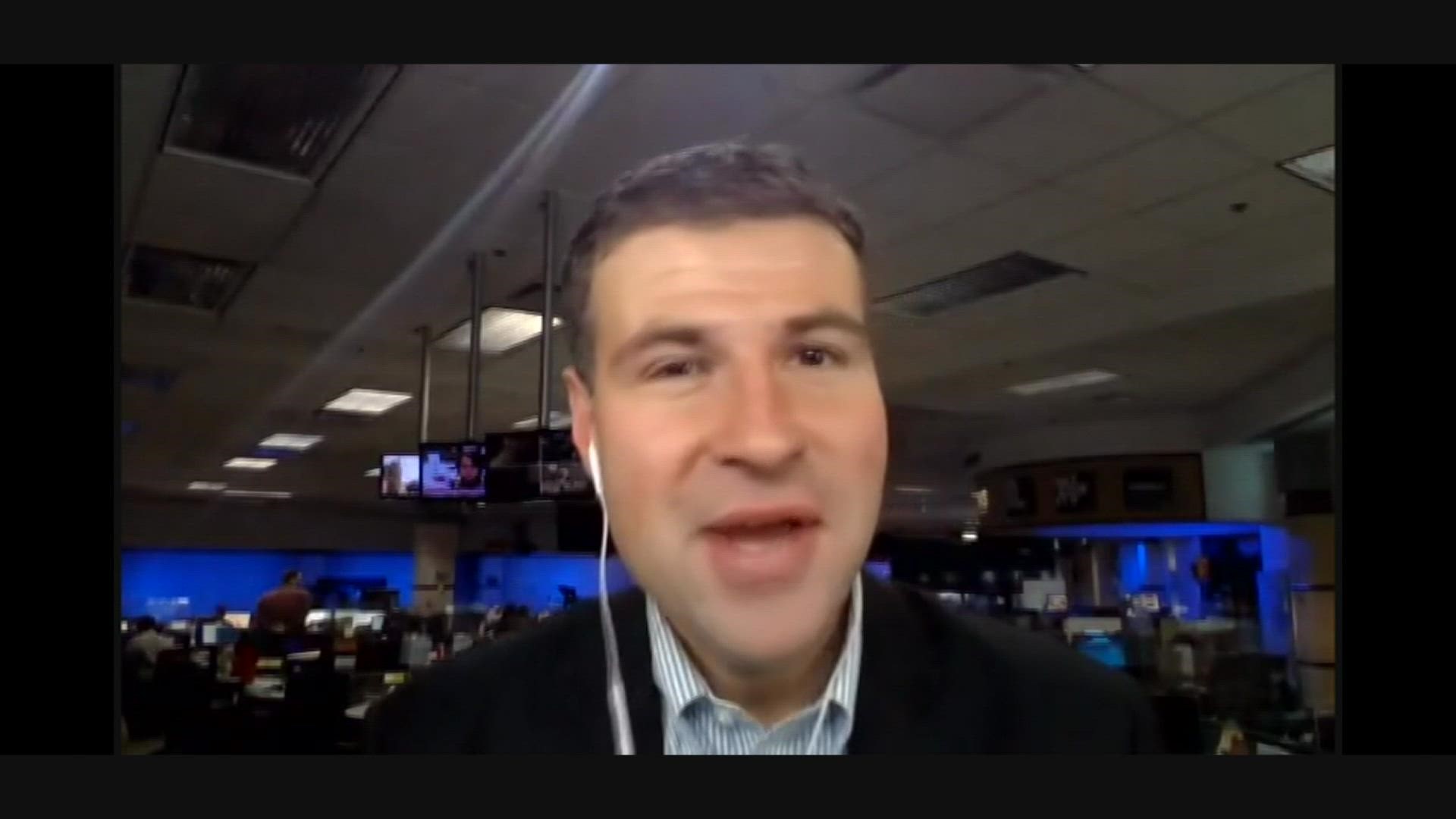COLORADO, USA — COVID-19 hospitalizations have hit an all-time low in Colorado since the pandemic began, and as a result, the state has not only begun ending the precautions put in place to prevent the spread of the virus, but it is also beginning to shut down mass vaccination sites throughout the state.
In this weeks segment, Dr. Ricardo González-Fisher of Servicios de la Raza spoke with 9NEWS about the organizations continued efforts to get the community vaccinated and whether or not it's possible for people to get COVID-19 and the flu at the same time.
According to Gonzalez-Fisher, the precautions set in place due to the pandemic not only helped in slowing down the spread of COVID-19, but they also had an impact on viral respiratory infections.
"When we started with all the social distancing and the mask wearing because of COVID, the number of flu cases dropped significantly, about 99% because of those measures," Gonzalez-Fisher said.
Although it is not a significant increase, González-Fisher said that now that places are starting to open up and and as the state relaxes social distancing and mask restrictions, there has been an increase in cases of viral respiratory infections caused by three different types of viruses: the adenovirus that causes the common cold, the influenza that will cause the flu and the virus respiratory syncytial that affects children and older adults.
“What is important here is that there is a study that they published at the Lancet last week that was talking about 212,000 individuals that were hospitalized because of COVID, [and] out of those close to 10% had another coinfection with one of those respiratory viruses," he said.
The study found that people who in addition to COVID-19 had influenza "had a 400% increase in the use of ventilator, and mortality with the common cold virus, increased 50%."
He said the study also found that those who had COVID-19 and a coinfection with influenza increased mortality by up to 240%.
According to Gonzalez-Fisher it is possible to get COVID-19 and the flu at the same time and "the risk of severe disease is increased when we have a co-infection with another virus."
"This is maybe another reason for which we want to be vaccinated," he added.
Servicios De La Raza, the state's largest nonprofit serving Latinos will continue to offer their vaccination clinic every Tuesday from 4-8 p.m. at the organization, which is located at 3131 W. 14th Ave.
On Thursday and Friday mornings, they will also hold clinics at the Mexican consulate located at 5350 Leetsdale Dr. #100. from 9 a.m. to 1 p.m.
Vanessa Bernal with the CDPHE also joined Gonzalez-Fisher and 9NEWS Watch anchor Chris Bianchi in this week's segment to discuss Colorado's current COVID numbers and what they mean.
The state's current numbers as of Tuesday are:
- 56 new cases reported
- 2 deaths among reported cases
- 84 people currently hospitalized of which 52% are not vaccinated
- 18 new hospital admissions
Bernal said the numbers of the Hispanic community, in terms of vaccination, remain very similar to the numbers presented last week at 39.69%.
However, she added that the state is now taking into account the new percentage from a model that had not been used before and which could raise that number by nearly 10%.
“It is a model percentage based on the zip code where people were vaccinated, because ethnicity is often left blank," she said in a previous article.
The new study, which was developed by CDPHE and Colorado School of Public Health, uses a model based on the Bayesian Improved Surname and Geocoding (BISG) methodology. BISG predicts race and ethnicity using a Bayesian algorithm that uses last names and location to determine the probability that an individual belongs to a given race and ethnicity.
The model uses the algorithm to best estimate the race and ethnicity of vaccinated patients who did not self-report.
Based on this projection, Bernal said the Hispanic vaccination rate is estimated to be more like 47.85%.
RELATED: Woman determined to raise vaccination rate among Latinos in Colorado through community-based effort
SUGGESTED VIDEOS: COVID-19 Vaccine

